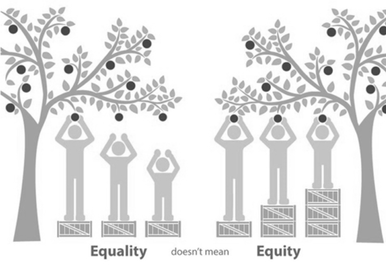|
If you are a professional or a writer who is passionate about health, racial, and social equity, consider contributing to our blog! Visit our Volunteer page to learn more. |
|
By Nicole Carberry  The COVID-19 pandemic has caused hardship and many stressful situations for young people in the United States. Amongst many other challenges, the mental health of many college-aged students has drastically been affected by the pandemic. College-aged students, between the ages of 17 and 22, have reported an increase in feelings of anxiety and depression since 2020. Main causes of such increase include social isolation as well as the health effects and the stress related to a long state of uncertainty. It is also difficult for many to receive adequate support from mental health professionals. Many college students already have a lot of stressors in their lives including financial difficulties, preoccupation with grades, and an increase in self-reliance and responsibilities. There is also significant stigma associated with mental health conditions that often prevents students from seeking professional help. Adding the COVID-19 pandemic on top of preexisting factors has served as a catalyst for an emerging mental health crisis among young people. In fact, 71 % of college students have reported an increase in symptoms of stress and anxiety in 2021 when compared to data from January of 2019 (1). Since the pandemic disproportionately affects communities of color and other groups that experience marginalization or vulnerability, reports on symptoms of anxiety and depression within this group are higher than among Non-Hispanic White adults (2). This is not surprising given the impact of social discrimination, such as racism, on mental health outcomes. Access to mental health professionals is also another obstacle among under resourced communities. Many factors such as socioeconomic status, physical environment and cultural barriers also affect a person's willingness to seek help. Finally, the demand for mental health professionals has increased over the past two years alongside spiking costs. Moreover, there are significant inequities in access to mental health resources across different colleges. It is important for all college students to get adequate care and access to mental health professionals during their time on campus. We need to break the pervasive stigma about mental health issues and recognize the importance of connecting college students with mental health professionals, especially for these students who experience higher rates of vulnerability and disadvantage. References
Author’s Bio: Nicole Carberry was the Fall-Spring 2022 Communication and Social Media Intern at Health Equity Initiative. She recently graduated from The College of New Jersey with a B.A. in Communication Studies. Some of her passions include advocating for marginalized groups and community engagement.
Image credit: Unsplash, Kyle Gregory Devaras: https://unsplash.com/photos/6RTM8EsD1T8
2 Comments
9/6/2023 02:09:31 pm
Kohl's is a popular retail chain in the United States, known for its affordable prices and wide selection of products. To maintain its competitive edge, Kohl's relies on customer feedback to improve its services and products.
Reply
Mikki
12/24/2023 02:13:13 am
Thanks for sharing
Reply
Leave a Reply. |
Archives
June 2023
CategoriesEditors:
Renata Schiavo, PhD, MA, CCL Alka Mansukhani, PhD, MS Radhika Ramesh, MA Guest posts are by invitation only. |



 RSS Feed
RSS Feed
